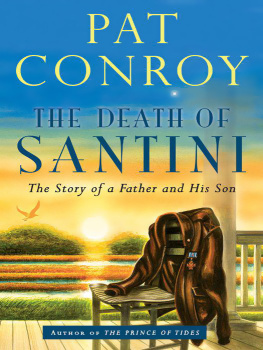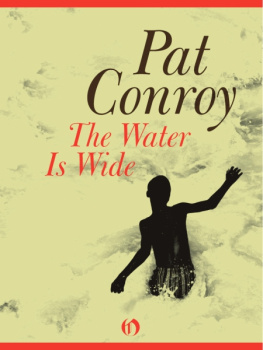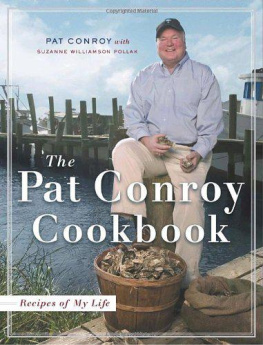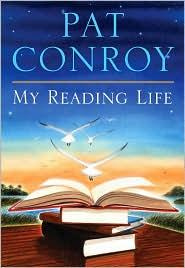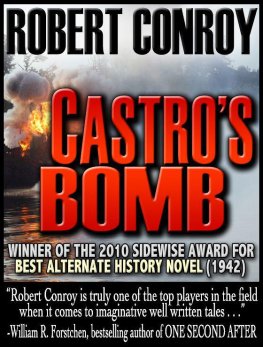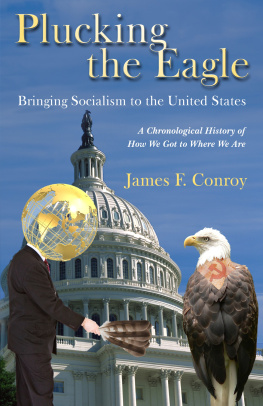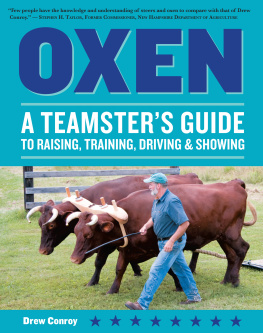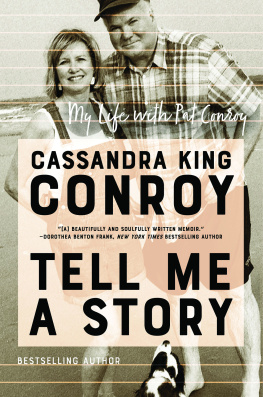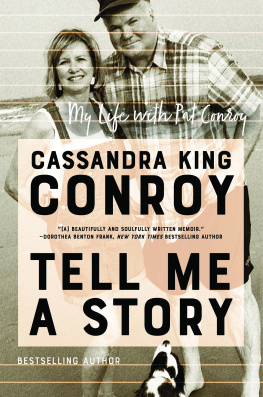Pat Conroy - My Losing Season: A Memoir
Here you can read online Pat Conroy - My Losing Season: A Memoir full text of the book (entire story) in english for free. Download pdf and epub, get meaning, cover and reviews about this ebook. year: 2003, publisher: Bantam Books, genre: Detective and thriller. Description of the work, (preface) as well as reviews are available. Best literature library LitArk.com created for fans of good reading and offers a wide selection of genres:
Romance novel
Science fiction
Adventure
Detective
Science
History
Home and family
Prose
Art
Politics
Computer
Non-fiction
Religion
Business
Children
Humor
Choose a favorite category and find really read worthwhile books. Enjoy immersion in the world of imagination, feel the emotions of the characters or learn something new for yourself, make an fascinating discovery.

- Book:My Losing Season: A Memoir
- Author:
- Publisher:Bantam Books
- Genre:
- Year:2003
- Rating:3 / 5
- Favourites:Add to favourites
- Your mark:
- 60
- 1
- 2
- 3
- 4
- 5
My Losing Season: A Memoir: summary, description and annotation
We offer to read an annotation, description, summary or preface (depends on what the author of the book "My Losing Season: A Memoir" wrote himself). If you haven't found the necessary information about the book — write in the comments, we will try to find it.
My Losing Season: A Memoir — read online for free the complete book (whole text) full work
Below is the text of the book, divided by pages. System saving the place of the last page read, allows you to conveniently read the book "My Losing Season: A Memoir" online for free, without having to search again every time where you left off. Put a bookmark, and you can go to the page where you finished reading at any time.
Font size:
Interval:
Bookmark:
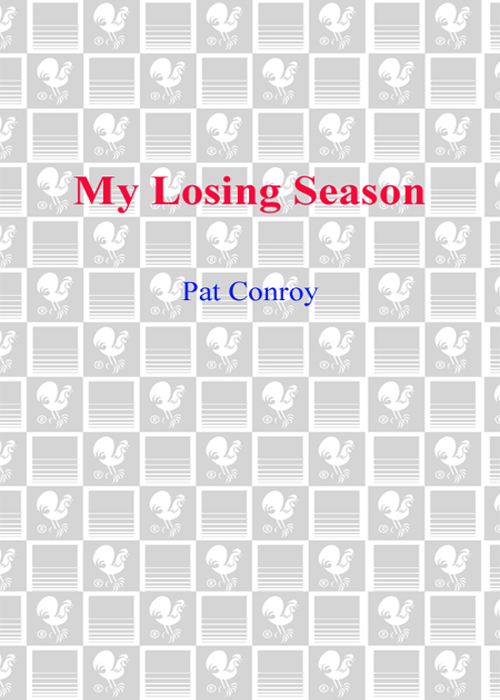
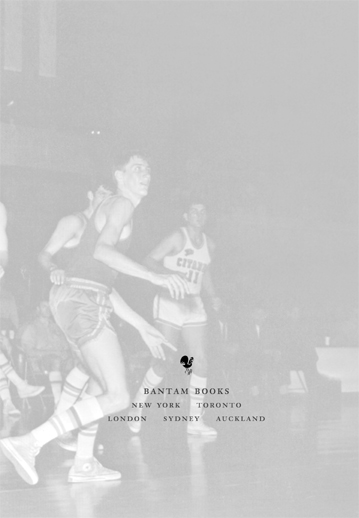
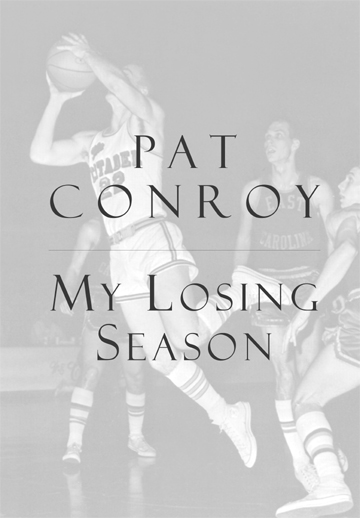
CONTENTS
PART ONE
THE POINT GUARD TAKES TO THE COURT
PART TWO
THE MAKING OF A POINT GUARD
PART THREE
THE POINT GUARD FINDS HIS VOICE
PART FOUR
THE POINT GUARD'S WAY OF KNOWLEDGE
This book is dedicated to my teammates on the 196667 Citadel
basketball team. It was an honor to take to the court with you guys.
Dan Mohr
Jim Halpin
John DeBrosse
Doug Bridges
Dave Bornhorst
Robert Cauthen
Bill Zycinsky
Alan Kroboth
Tee Hooper
Gregory Connor
Brian Kennedy
And their lovely wives and children who made me welcome in their homes: Maria, Alexis, and Michael Bornhorst; Sandra, Rob, Macon, and Buffy Cauthen; Eileen, James, and Michael Halpin; Cynthia, Micah, and Erin Kennedy; Teena, Doug, and Guy; Barbara, Gregory, Jeffrey, and Jeremy Connor; Cindy, Matthew, and Elizabeth Mohr; Pam, J.J., Scott, and Katie DeBrosse; Sherry, Travis, and Amy Hooper; Patty and George Kroboth.
And to my wife, Cassandra King, the light of my life.
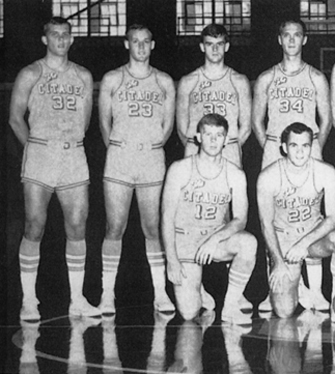
THE CITADEL BASKETBALL SQUAD
1966-1967
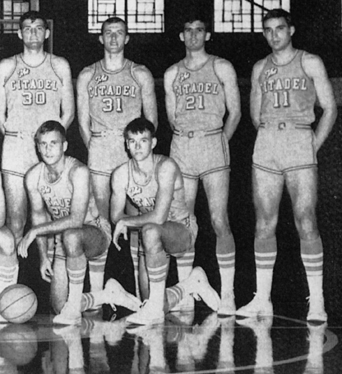
FRONT ROW: John DeBrosse, Pat Conroy, Jim Halpin,
Tee Hooper
BACK ROW: Doug Bridges, Greg Connor, Brian Kennedy, Dave Bornhorst, Dan Mohr, Al Kroboth,
Bob Cauthen, Bill Zinsky
PROLOGUE
I WAS BORN TO BE A POINT GUARD, BUT NOT A VERY GOOD ONE.
There was a time in my life when I walked through the world known to myself and others as an athlete. It was part of my own definition of who I was and certainly the part I most respected. When I was a young man I was well built and agile and ready for the rough-and-tumble of games, and athletics provided the single outlet for a repressed and preternaturally shy boy to express himself in public. Games allowed me to introduce myself to people who had never heard me speak out loud, to earn their praise without uttering a single word. I lost myself in the beauty of sport and made my family proud while passing through the silent eye of the storm that was my childhood.
Football and baseball were always secondary sports to me, and I played them to appease my father, and because they were seasonal in nature. I tried out for baseball teams when farmers were planting cotton, and I was putting on a football helmet to run back punts when they were harvesting it. But I was a basketball player, pure and simple, and the majesty of that sweet sport defined and shaped my growing up. I cannot explain what the sport of basketball meant to me, but I have missed it more than anything else in my life since it issued me my walking papers and released me to live out my life as a voyeur and a fan. I was never a very good player, but the sport allowed me glimpses into the kind of man I was capable of becoming. I exulted in the pure physicality of that ceaseless, ever-moving sport, and when I found myself driving the lane beneath the hot lights amid the pure electric boisterousness of crowds humming and screaming as a backdrop to my passion, my chosen game, this love of my life, I was the happiest boy who ever lived.
Where did all those games go, the ones I threw myself headlong into as a boy, a rawboned kid who fell in love with the smell and shape of a basketball, who longed for its smooth skin on the nerve endings of my fingers and hands, who lived for the sound of its unmistakable heartbeat, its staccato rhythms, as I bounced it along the pavement throughout the ten thousand days of my boyhood? The one skill I brought to the game was my ability to handle a basketball, and if you tried to intercept me, if you moved without stealth or cunning, I would go past you. Even now that is a promise; I would pass you in a flash the entire game with you trying to catch me. I could move down the court with a basketball and I could do it fast.
But the games are fading on me now where once they imprinted themselves, bright as decals, on the whitewashed fences of memory. Once, I could replay them all, almost move for move, from the moment the referee first lofted the ball between the two crouching centers until the losing team launched their desperate, last-second shot, the horn sounded, and the players shook hands and drifted toward locker rooms and the judgment of our coaches. Yet, a few of those lost games maintain their power to thrill me with their immediacy and import. They take me back to a time when my life was pure action and my days passed among slashing elbows vying for rebounds coming off a clear glass backboard. Every practice and game contained the possibility of bones being broken. From the time I was nine until the day I left college, my knees stayed scabbed and tender from my scrambling for loose balls.
Because I was shorter than most college players, I tried to rule those lower regions, and when the ball hit the floor, it was mine, and too bad for you if you got in my way. I liked to put the big men on the floor when they fought me for possession of the ball as it was bouncing or rolling along the court. I substituted hustle for talent and the sure knowledge that if I did not want it more than my opponent, he would defeat and humiliate me with those gifts that nature denied me. What I had was a powerful will and a fiery competitiveness and the burning desire to be a great player in the Southern Conference when there was not even the slightest chance I could be a memorable one. I found myself constantly downsizing my dreams as a basketball player as my career was train-wrecked by mediocrity. But make no mistake, I desired greatness for myself and longed to be the best point guard who ever played the game.
From my ninth to my twenty-first year, I lived with a basketball in my hand, driving my mother crazy by throwing up imaginary jump shots in every room in the house. For years, I would try to take three hundred jump shots a day to improve my weakness as an outside shooter. I never left the court in my life after practice without making my last shot. This was not a superstition; this was a discipline.
The lessons I learned while playing basketball for the Citadel Bulldogs from 1963 to 1967 have proven priceless to me as both a writer and a man. I have a sense of fair play and sportsmanship. My work ethic is credible and you can count on me in the clutch. When given an assignment, I carry it out to completion, my five senses lit up in concentration. I believe with all my heart that athletics is one of the finest preparations for most of the intricacies and darknesses a human life can throw at you. Athletics provide some of the richest fields of both metaphor and clich to measure our lives against the intrusions and aggressions of other people. Basketball forced me to deal head-on with my inadequacies and terrors with no room or tolerance for evasion. Though it was a long process, I learned to honor myself for what I accomplished in a sport where I was overmatched and out of my league. I never once approached greatness, but toward the end of my career, I was always in the game.
Font size:
Interval:
Bookmark:
Similar books «My Losing Season: A Memoir»
Look at similar books to My Losing Season: A Memoir. We have selected literature similar in name and meaning in the hope of providing readers with more options to find new, interesting, not yet read works.
Discussion, reviews of the book My Losing Season: A Memoir and just readers' own opinions. Leave your comments, write what you think about the work, its meaning or the main characters. Specify what exactly you liked and what you didn't like, and why you think so.

